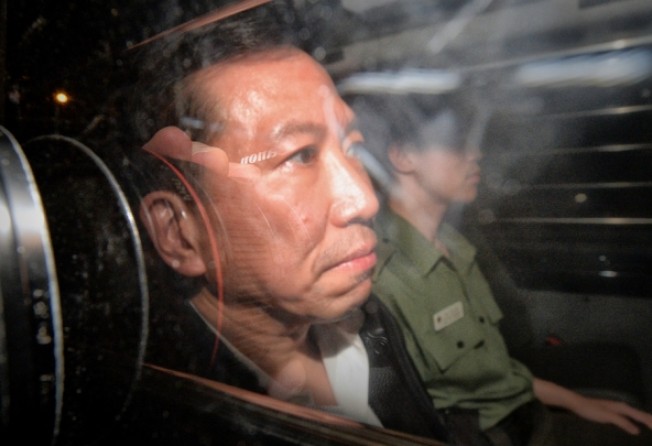Legal experts lay long odds on a successful appeal

Peter Chan Chun-chuen and his family were tight-lipped yesterday over whether he planned to lodge an appeal, but criminal law specialists say the jailed former fung shui master will face a long and difficult fight if he does.
If the self-taught geomancer who converted to Christianity decided to file an appeal, his case might drag on for as long as six years if it took the same course as that of "milkshake murderer" Nancy Kissel.
It would also be difficult for Chan to be freed on bail pending appeal, the experts said.
Solicitor Stephen Hung Wan-shun, vice-president of the Law Society and a crime specialist, said Chan stood an "extremely slim" chance of arguing that the verdict reached by the eight-member jury was flawed.
"He may allege that some jurors were sleeping when hearing the evidence and the judge's direction, but only a rare case would succeed," Hung said.
Another rare situation in which a jury verdict might be overturned was "inconsistent verdicts" - where the prosecution said two charges were connected but the jury's decision showed otherwise, he said, adding that this was not the situation in Chan's trial.
Hung said Chan would be more likely to argue that the judge made mistakes in the trial, either on points of law or on factual issues.
"But even if the judge had made a mistake, the Court of Appeal may say that the error is not a material error and did not [influence] the result," he said.
A Court of First Instance jury of five men and three women found Chan guilty on Thursday of forgery by a 6-2 vote and of using a false instrument by a 7-1 vote.
Hung said Chan would also face an uphill battle in arguing that his 12-year jail term should be reduced.
"He must show the sentence is not only excessive but manifestly excessive," he said. "His chance [of winning] an appeal against the sentence is small."
Hung added that the judge's reasons for the jail term were reasonable and difficult to attack.
Eric Cheung Tat-ming, principal lecturer in the law faculty at the University of Hong Kong, said Chan would not be granted bail pending appeal unless the Court of Appeal was persuaded that he had a good chance of winning.
Cheung said Chan had 28 days from the date of sentencing to apply for permission to appeal.
If granted, an appeal could be heard as soon as six months later.
He said it was difficult to ask for leave to take the case to the Court of Final Appeal.